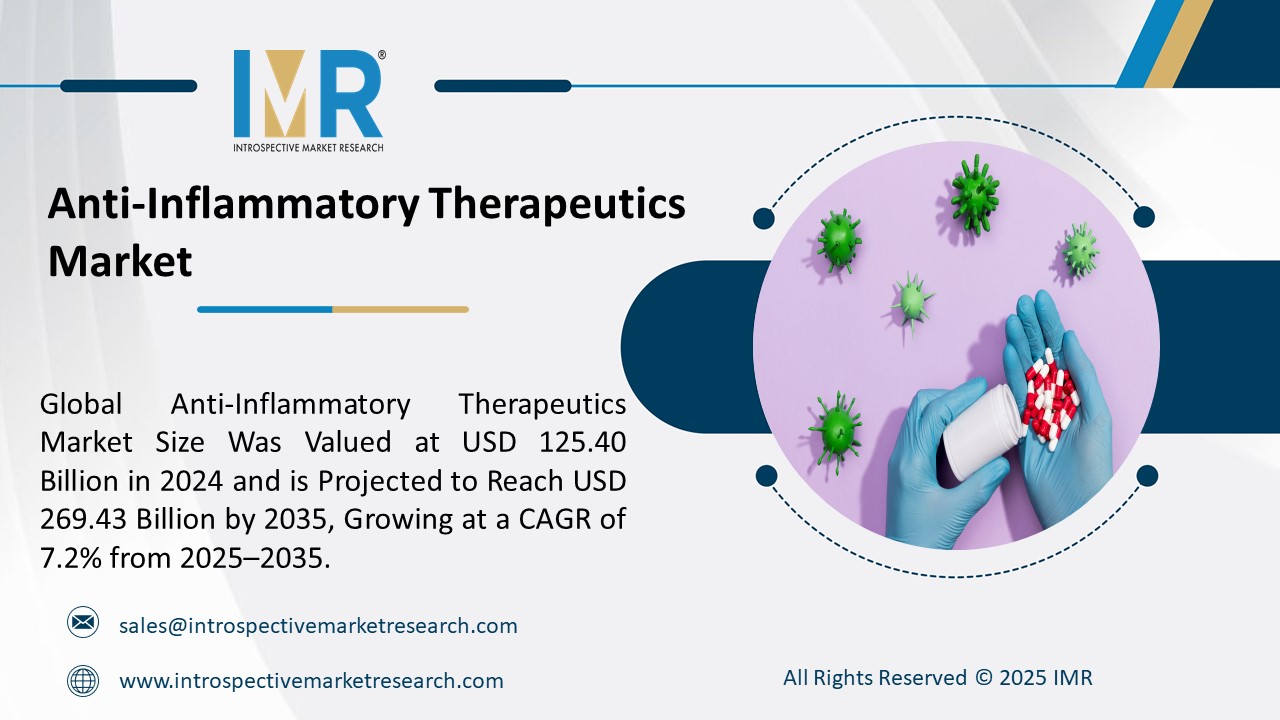
Probiotic Skin Care Cosmetic Product Market Overview
According to a new report published by Introspective Market Research, titled, ?Probiotic Skin Care Cosmetic Product Market by Type, Packaging Type, Application, End User, Distribution Channel and Region: Global Opportunity Analysis and Industry Forecast, 2024?2032,?
Global Probiotic Skin Care Cosmetic Product Market size was valued at $ 52.93 million in 2023, and is projected to reach $ 203.65 million by 2032, registering a CAGR of 16.15 % from 2024 to 2032.
Probiotics are often added to skin care products because they help balance the skin's microbiota, which is usually destroyed by heavy exfoliation, chemical peels, and obsessive washing. The skin's natural microorganisms support the body's ability to maintain healthy skin functions. Probiotics are different types of bacteria that live inside and on our bodies.
Consumer interest in the probiotic skincare market is growing as awareness of the link between skin health and the microbiome grows. These products aim to promote a healthy skin microbiome and treat a variety of skin concerns. Probiotics are included in cosmetic products to enhance the skin's natural defense mechanisms, balance the microbiome, and improve overall skin health. Probiotic skin care products are said to offer benefits such as improved hydration, reduced inflammation, and support for skin conditions such as acne and eczema. There are a variety of probiotic skin care products on the market, including cleansers, creams, serums, and masks. Companies are investing in research and development to understand the mechanisms by which probiotics affect the skin and create more effective formulations.
Consumers are increasingly focusing on clean beauty, avoiding harmful chemicals and synthetic additives in skincare products. Probiotic skin care products, often formulated with natural and organic ingredients, align with this trend. The growing emphasis on ingredient transparency is attracting consumers who seek authenticity and transparency in their skincare choices. The demand for probiotic skincare aligns with the broader trend towards holistic wellness, where skincare is seen as an integral part of overall well-being. The use of natural and organic ingredients, including probiotics, reinforces this holistic approach to beauty and self-care. Additionally, individuals with sensitive skin or allergies may be drawn to natural and organic skincare products, as they are perceived as gentler and less likely to cause skin irritation.
The skincare market is highly competitive, and innovation allows companies to differentiate their products by developing unique probiotic formulations. Tailoring probiotic skincare products to address diverse skin concerns, such as anti-ageing, acne-prone, sensitivity, or hydration, expands the market's appeal. Combining probiotics with other beneficial ingredients, such as antioxidants, vitamins, and hyaluronic acid, enhances the overall effectiveness of the product. Advanced delivery systems, such as encapsulation technologies or time-release mechanisms, can optimize the efficacy of probiotic skincare. The opportunity lies in creating personalized probiotic skincare products based on individual skin types and concerns, aligning with the growing trend of tailored skincare routines. This approach offers a comprehensive skincare solution that caters to the diverse needs of consumers.
The development of multi-functional probiotic skincare products, which combine moisturization, anti-ageing, and environmental protection, can appeal to consumers seeking simplicity and efficiency in their skincare routines. Innovative application formats, such as patches, sticks, or serums with unique textures, can enhance the user experience and make probiotic skincare more accessible. Sustainable and eco-friendly packaging is also an opportunity, as consumers value environmentally conscious choices.
Global Probiotic Skin Care Cosmetic Product Market, Segmentation
The Probiotic Skin Care Cosmetic Product Market is segmented based on type, packaging type, application, end-user, distribution channel, and region.
Type:
The type segment is further classified into Cream, Serum, and Spray. Among these, the Cream sub-segment accounted for the highest market share in 2023. Creams are versatile and widely used, catering to various skin types and concerns. They offer moisturizing properties along with probiotic benefits, making them a preferred choice for consumers seeking comprehensive skincare solutions. Moreover, creams are often perceived as a fundamental step in skincare routines, further bolstering their demand and market presence. Their ease of application and ability to deliver probiotics effectively to the skin contribute to their popularity among consumers globally. Additionally, advancements in formulation techniques have led to the development of innovative probiotic-infused creams, enhancing their efficacy and appeal. As a result, the cream segment continues to dominate the probiotic skin care cosmetic product market, poised for further growth and innovation in the coming years.
Application:
The application segment is further classified into Individual Use and Commercial Use. Among these, the Individual use sub-segment is anticipated to show the fastest growth by 2032. The probiotic skincare market is experiencing a significant shift towards personalized skincare routines, driven by the demand for products that cater to individual preferences, skin types, and concerns. This trend is driven by the desire for products that can be seamlessly integrated into existing routines, allowing for flexibility and adaptability. Individual-use products often target specific skin concerns, such as anti-ageing, hydration, acne, or sensitivity, and cater to diverse skin types. These products offer formulations that address the specific needs and characteristics of each skin type. Consumer empowerment is another key aspect of this segment, allowing consumers to curate their skincare regimens based on personal preferences and experiences.
Region:
The Probiotic Skin Care Cosmetic Product Market in North America is projected to show the fastest growth by 2032. North American consumers are increasingly aware of skincare trends and innovations, driven by a strong health and wellness culture. The mature beauty and personal care industry in the region are home to numerous established skincare brands, retailers, and beauty influencers. The demand for natural and organic skincare products is a significant driver, and probiotic skincare, often associated with natural ingredients, aligns well with the growing demand for clean beauty products. North America is a hub for innovation and product development in the beauty and skincare sector, with continuous research and development activities aimed at creating cutting-edge formulations, including those incorporating probiotics for skincare benefits. The relatively high disposable income of consumers in North America contributes to their willingness to invest in premium and innovative skincare products.
Some of The Leading/Active Market Players Are-
- Mother Dirt (U.S.)
- Estee Lauder Inc. (U.S)
- Amyris, Inc (U.S.)
- Procter & Gamble Co. (U.S.)
- Too Faced Cosmetics, LLC (U.S.)
- TULA Life, INC (U.S.)
- Clinique Laboratories, LLC (U.S)
- GLOWBIOTICS Inc (U.S.)
- The Clorox Company (U.S.)
- LaFlore Probiotic Skincare (U.S.), and Other Active Players
Key Industry Developments
- In February 2024, the French multinational L'Or?al acquired a Danish precision probiotics startup, Lactobio?, and shared that this move would open up many new doors for NPD, including the opportunity to develop new topical skin care and hair care products based on live bacteria. Cosmetics Design-Europe? spoke to the deputy domain leader, of advanced research at L'Or?al R&I, Dr Magali Moreau about what?s happening in the business in this sector.
- In August 2023, L?Or?al finalized its acquisition of esteemed luxury beauty brand Aesop. Nicolas Hieronimus, CEO of L?Or?al Groupe, expressed eagerness to integrate Aesop?s urban, luxurious essence into their portfolio, particularly eyeing growth in China. Cyril Chapuy, President of L?Or?al Luxe, anticipates Aesop?s ascent to the esteemed 'Billionaire Brands' club. Aesop's CEO, Michael O?Keeffe, lauded the partnership, envisioning global expansion while maintaining brand integrity.
Key Findings of the Study
- Probiotic skin care cosmetic product market was valued at $52.93 million in 2023, projected to reach $203.65 million by 2032, with a CAGR of 16.15%.
- Shift towards personalized skincare routines driving growth in individual-use products, catering to diverse preferences and skin types.
- North America is projected to lead market growth by 2032, driven by strong awareness, demand for clean beauty, and innovation in the skincare sector.





